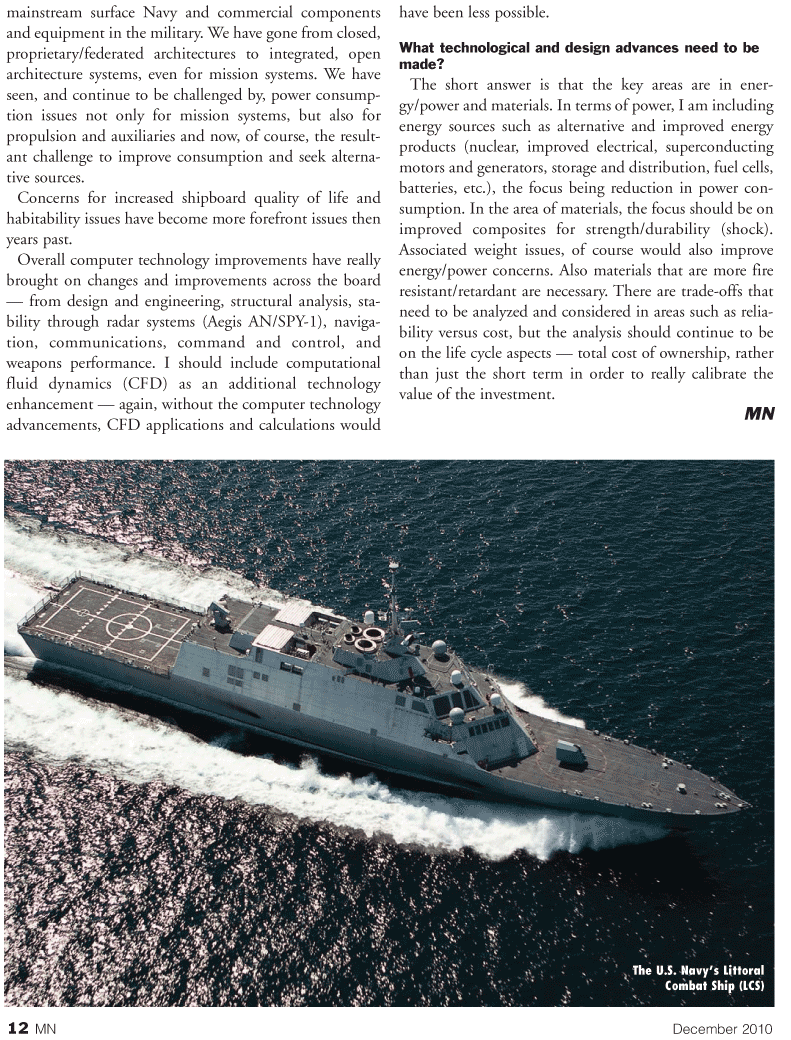
Page 12: of Marine News Magazine (December 2010)
Great Ships of 2010
Read this page in Pdf, Flash or Html5 edition of December 2010 Marine News Magazine
12 MN December 2010 mainstream surface Navy and commercial components and equipment in the military. We have gone from closed, proprietary/federated architectures to integrated, open architecture systems, even for mission systems. We have seen, and continue to be challenged by, power consump- tion issues not only for mission systems, but also for propulsion and auxiliaries and now, of course, the result- ant challenge to improve consumption and seek alterna- tive sources.
Concerns for increased shipboard quality of life and habitability issues have become more forefront issues then years past.
Overall computer technology improvements have really brought on changes and improvements across the board — from design and engineering, structural analysis, sta- bility through radar systems (Aegis AN/SPY-1), naviga- tion, communications, command and control, and weapons performance. I should include computational fluid dynamics (CFD) as an additional technology enhancement — again, without the computer technology advancements, CFD applications and calculations would have been less possible.
What technological and design advances need to be made?
The short answer is that the key areas are in ener- gy/power and materials. In terms of power, I am including energy sources such as alternative and improved energy products (nuclear, improved electrical, superconducting motors and generators, storage and distribution, fuel cells, batteries, etc.), the focus being reduction in power con- sumption. In the area of materials, the focus should be on improved composites for strength/durability (shock).
Associated weight issues, of course would also improve energy/power concerns. Also materials that are more fire resistant/retardant are necessary. There are trade-offs that need to be analyzed and considered in areas such as relia- bility versus cost, but the analysis should continue to be on the life cycle aspects — total cost of ownership, rather than just the short term in order to really calibrate the value of the investment.
MN
The U.S. Navy’s Littoral
Combat Ship (LCS)

 11
11

 13
13
